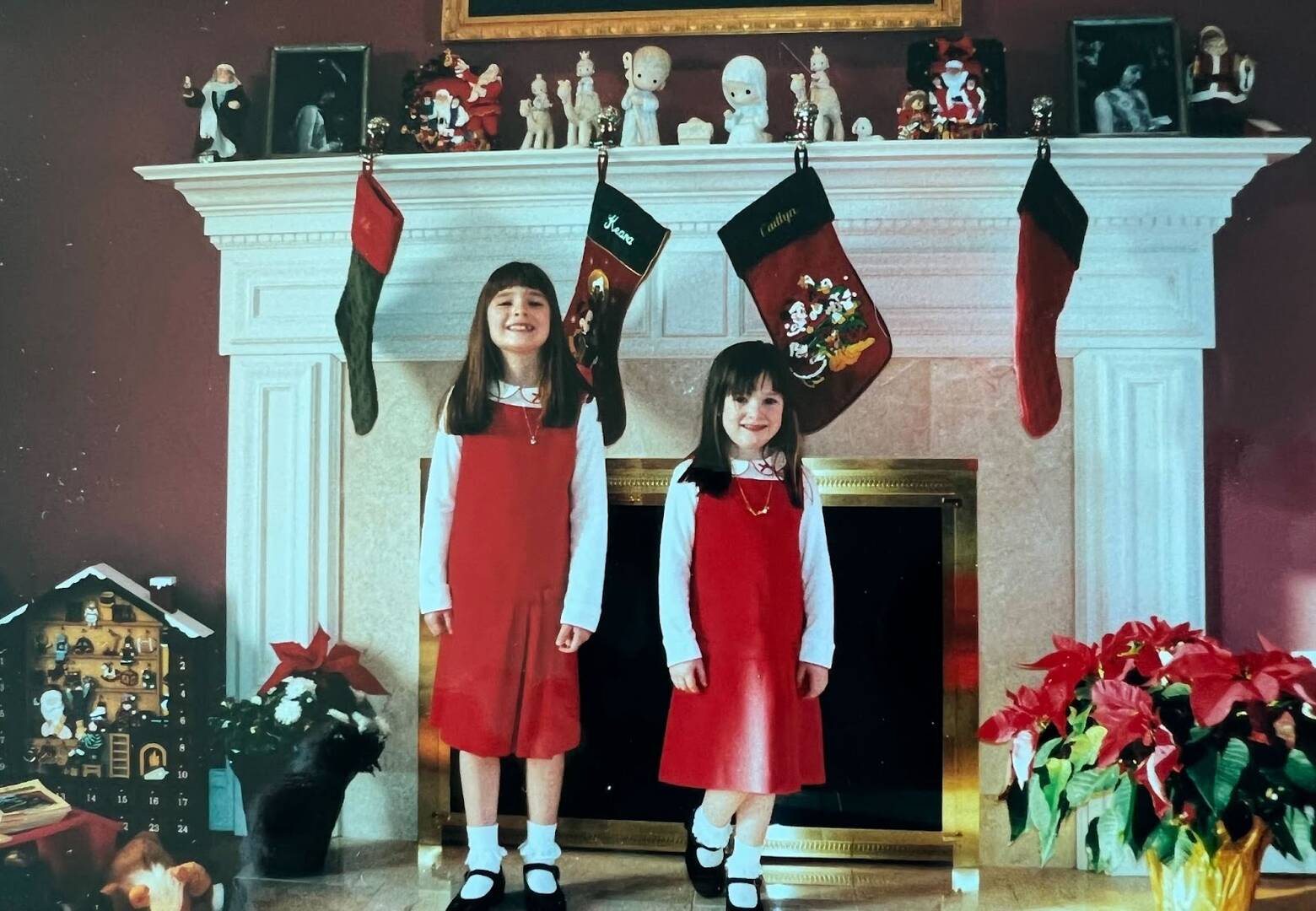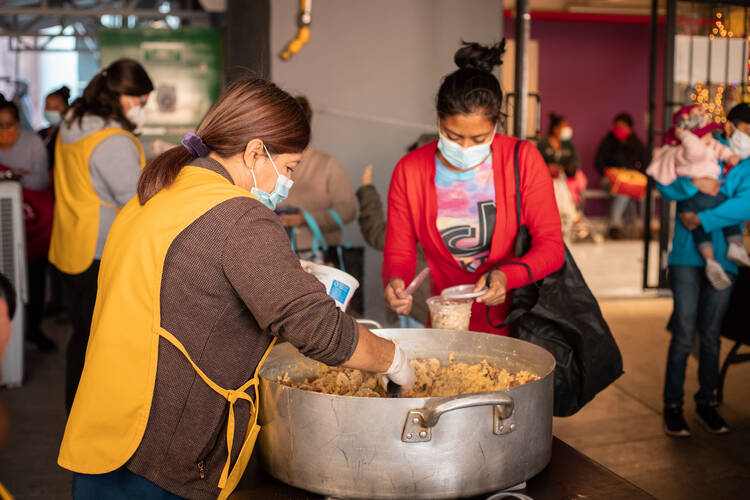A Reflection for the Monday of the Third Week of Advent
“How goodly are your tents, O Jacob;
your encampments, O Israel!
They are like gardens beside a stream,
like the cedars planted by the LORD.
A star shall advance from Jacob,
and a staff shall rise from Israel” (Nm 24:5-7).
The Kino Border Initiative, a Jesuit ministry in Nogales, Mexico, is a pop of color in a bland desert landscape. For a photographer like myself, the contrast here is thrilling. Volunteers in sunflower-yellow aprons serve food to the hungry, legal experts offer counsel to migrants behind purple doors, and Estrella the grey cat rubs up against children’s legs to say hello.
But some of the most striking images cannot be captured by camera—we cannot photograph the children without express permission. They are too vulnerable.
My visit is an reminder of God’s closeness to those on the margins. For the Israelites in exile and these migrants at the southern border, I am sure that hope may feel far away.
Unlike the Israelites in the first reading, these migrants do not even have tents. Instead, they sit in metal chairs just outside, waiting for the call that “desayuno esta listo”—“breakfast is ready.”
On the other side of the wall, cartel members loiter, watching like hawks, searching for the most vulnerable.
My visit is an excellent reminder of God’s closeness to those on the margins. For the Israelites in exile and these migrants at the southern border, I am sure that hope may feel far away. But in reality, these people live closer to the truth of the Christmas story than someone as privileged as me ever could.
Having traveled far, they long for a safe place to rest. Some are pregnant, others have small children in tow. They have followed their north star through the desert and find themselves staring up at a brown-slatted fence that seems to tell them there is no room at the inn.
They have followed their north star through the desert and find themselves staring up at a brown-slatted fence that seems to tell them there is no room at the inn.
And yet the hope and faith of these people is as palpable as their suffering. Inside, a woman stops to take a photo of her daughter in front of a shrine to Our Lady of Guadalupe. Many people in the region have a deep devotion to Our Lady of Guadalupe, but I wonder if this woman feels a special kinship with her, another mother willing to do anything to protect her child. Her daughter dances up to the statue, twirling under the Christmas lights that decorate the hall. She is the future.
This Advent I am praying for the brothers and sisters in Christ that I met down in Nogales and displaced persons everywhere. I pray that, like the Israelites, they too will be guided safely home.
Get to know Keara Hanlon, Joseph A. O’Hare Post-graduate Media Fellow
1. Favorite Christmas Song/Hymn
“Silent Night”/“Night of Silence”
2. Favorite Christmas Tradition
Watching “It’s A Wonderful Life” with my family on Christmas Eve
3. Favorite Christmas Recipe
Maple Pecan Twist Cookies
4. Favorite Article You Wrote This Year
“I am a young person living with chronic pain. Please don’t tell me it’s just part of God’s plan.”
5. Favorite Christmas Photo
I’m the cute one ;)








